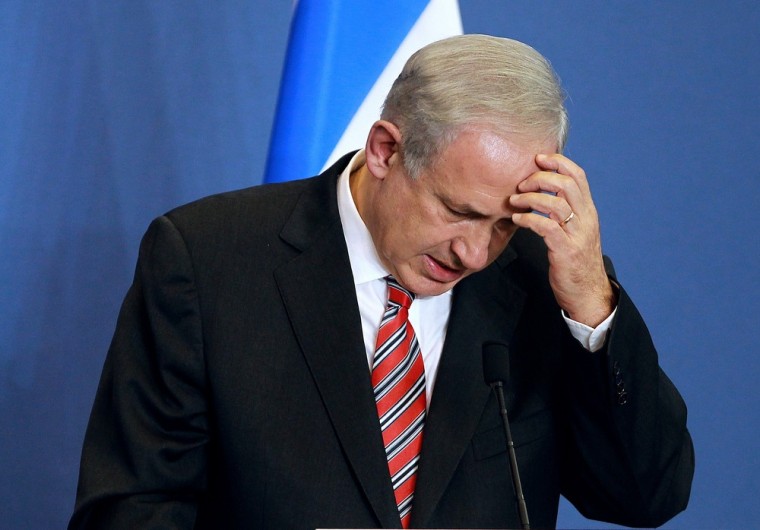In what will be the most predictable election in the history of Israel, on Tuesday Bibi Netanyahu will win a third term as prime minister.
The comatose Israeli left has run on the high cost of living while ignoring the Isreali-Palestinian conflict. Meanwhile,the extreme and emboldened religious right led by Netanyahu and his partners have run on a platform of zero negotiation and zero interest in a political solution. As it was put by Israel’s Minister of Internal Affairs, the goal of Israel’s latest operation was “to bomb Gaza back to the Middle Ages.” And if anyone dares to criticize the government, they are invariably accused of being anti-Semitic. The prospect for a two-state solution has never looked worse.
The irony is that Bibi Netanyahu will go down in history as the leader who destroyed the Jewish identity of Israel. His recent decision to accelerate the construction of illegal settlements in E1, the area that connects East Jerusalem with the West Bank, will split the West Bank in half and irrevocably prevent the creation of a contiguous Palestinian state. It is the final nail in the coffin of the two-state solution. This fait accompli leaves only one option: A single binational democratic state with equal rights for all citizens.
Netanyahu and his extreme right-wing coalition believe that by creating facts on the ground they are strengthening Israel. The last twenty years have been driven by policies that reward the expansion of illegal settlements and military outposts, blurring the borders between “Israel” and “Palestine.” The state has encouraged the seizure of Palestinian agricultural lands, redirected water resources for settlement use, and built a highway infrastructure for the exclusive use of Jewish settlers that connects them to Jerusalem and Tel Aviv.
Israel has invested billions of dollars to consolidate its presence in the West Bank and East Jerusalem, and its mentality is that it will never leave any of it behind. The goal of the policy is to make the Israeli presence irreversible. As former Prime Minister Ariel Sharon, who is considered the father of the settlements, once said, “Everybody has to move, run and grab as many (Palestinian) hilltops as they can to enlarge the (Jewish) settlements because everything we take now will stay ours...Everything we don't grab will go to them.”
Reversing this reality is almost impossible, even if Israel wanted to. In 2006, it was a national trauma to move thousands of settlers from Gaza and force them to abandon their homes, farms, and synagogues. Imagine the nightmare of transferring half a million Jewish settlers from Palestinian lands. No prime minister will ever have the political capital to do that. Therefore, the prospect of a two-state solution is now dead on arrival.
Because successive Israeli governments have obliterated the geographic separation between Israel and Palestine, we must look at the landscape as one population. As Peter Beinhart writes in The Crisis of Zionism, “democratic and nondemocratic Israel have become Siamese twins. They share the same telephone system, bus system, road system, rail system, water system, and electricity grid…Many Israeli maps and textbooks no longer show the green line [the border between Israel and Palestine] at all.”
But the problem for Israel’s Jewish identity is not only that Israel and Palestine are intertwined. The main issue is that Israel has already lost the demographic war. Between Israel, East Jerusalem, the West Bank, and Gaza, Palestinians constitute 50% of the population. By 2025, Palestinians will be a clear majority with 60%.
The pragmatic course for Palestinians and the PA is to stop pushing for a two-state solution that is no longer viable. It is a dream that they must painfully abandon--and Israel must face the harsh reality that, in the territory it controls and governs, Jews are no longer the majority. The path forward that might represent a way out of this conflict is the creation of a new democratic binational state where the rights, freedoms, and identities of both Jews and Palestinians are protected.
Israelis will have no other choice than a new state with equal citizenship regardless of ethnic or religious identity. The recent history of Iraq, Syria, Bahrain, and South Africa demonstrate the dangerous consequences of a minority using the power of state institutions to rule over a majority. It is a recipe for a disastrous future.
Israel’s core identity is that it is a Jewish state, and its institutions are built to sustain that identity. It is unquestionable that the majority of Israelis want it to remain a Jewish state. But the reality is that because of its policies in the Occupied Territories, Israel has already made a clear choice. When the green line disappears forever, the Jewish identity of the state will be lost with it.
Israel and Palestine should learn from the history of Europe. After the bloodbath of World War II, European countries built a union around common economic interests. German steel and French coal got together. The economic interconnectivity among European nations led to the European Community and eventually to the European Union. The astounding carnage of the first half of the 20thcentury had come to an end and peace has turned out to be durable. If Germany could stop fighting France, if the fractious Europeans could get together to do business, then Palestinians and Israelis can do the same. It only takes leadership.
